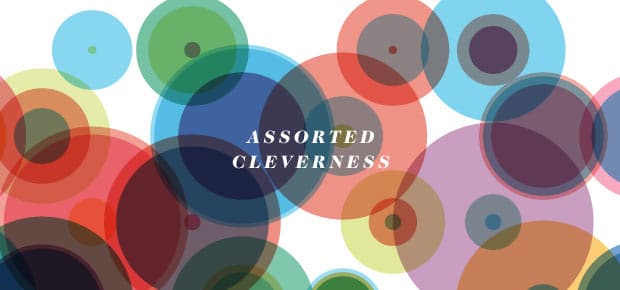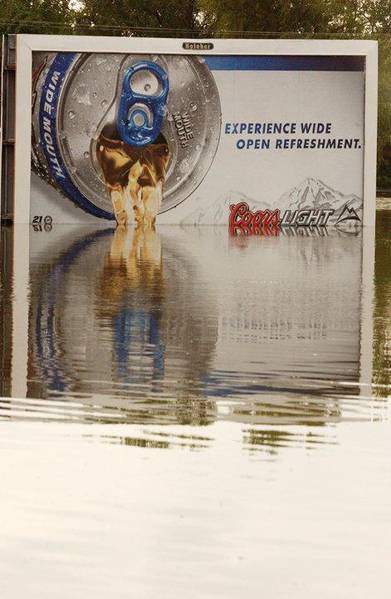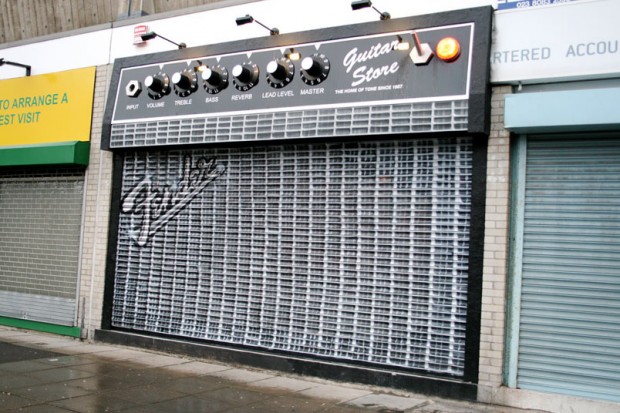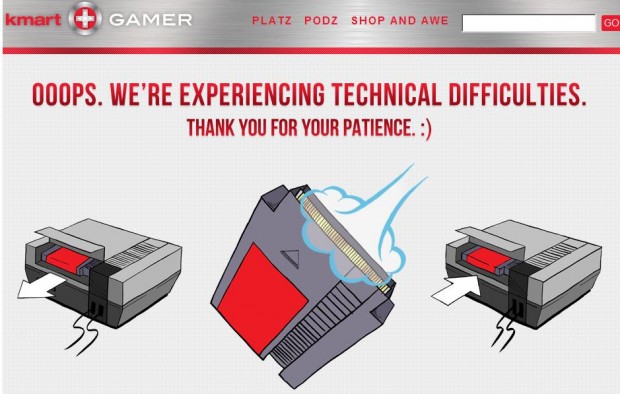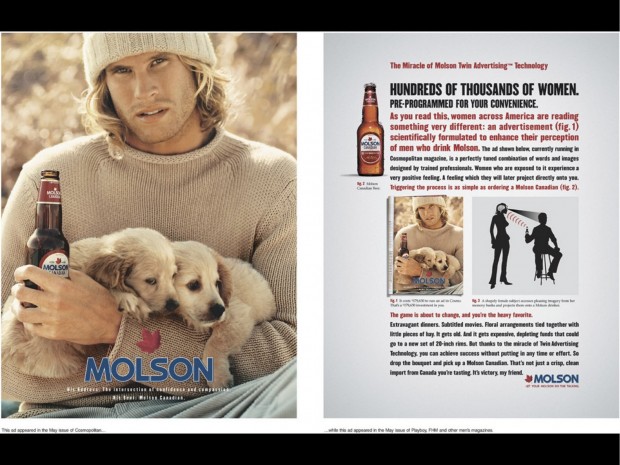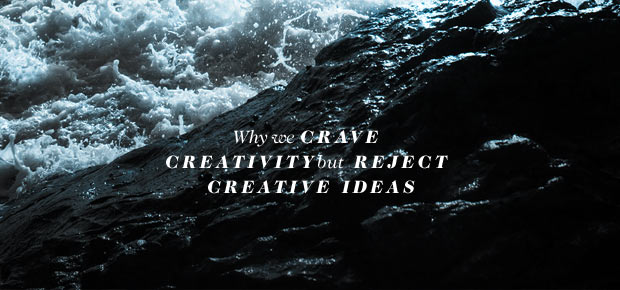Floods in Bartlesville, Oklahoma complete this billboard.
I really appreciate the kind of thought that goes into creating an experience like this. A great use of surprise and delight.
This is K-Mart’s error page for gamers. If you don’t “get” this instruction, don’t worry. You just have to know that it fits perfectly with their audience. Inside jokes like this work really well to create a sense of community.
The ad on the left was placed in Cosmo, and the ad on the right was placed in assorted men’s magazines (eg: Maxim). The men’s explains that the women’s ad is creating a subliminally positive image of men that drink Molson Canadian. If they only ran the men’s ad, would it have made any difference?
